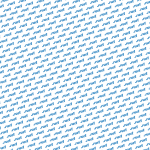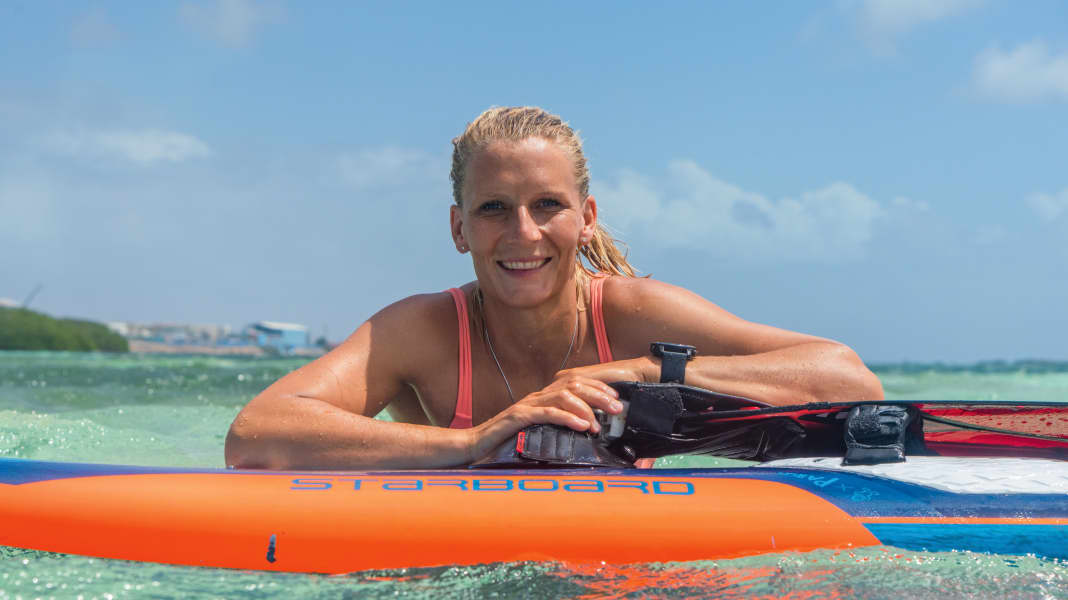
The Norwegian would probably be a multiple freestyle world champion if it weren't for a certain Sarah-Quita Offringa. But her biggest rival is also her best friend. Oda was a late starter - she almost made a career for Norway's national handball team. In the Windsurfing.TV podcast, Worldcupper Maciek Rutkowski asks her about her switch from the hall to the water, her training and discusses the identical prize money for women and men in the PWA World Cup.
You travel a lot, especially with Sarah-Quita and Maaike Huvermann, the top 3 in the world in women's freestyle. How does that work? Do you ride against each other all the time?
It's ideal for me to be on the water with the two of them. It's super good for us to train together. Sarah is the queen, she's simply the best, and it's always good to have someone to look up to, to orientate yourself on the water. And I also think it's good for her to surf with us, especially when it's cold (laughs). We'll get them into the wetsuit!
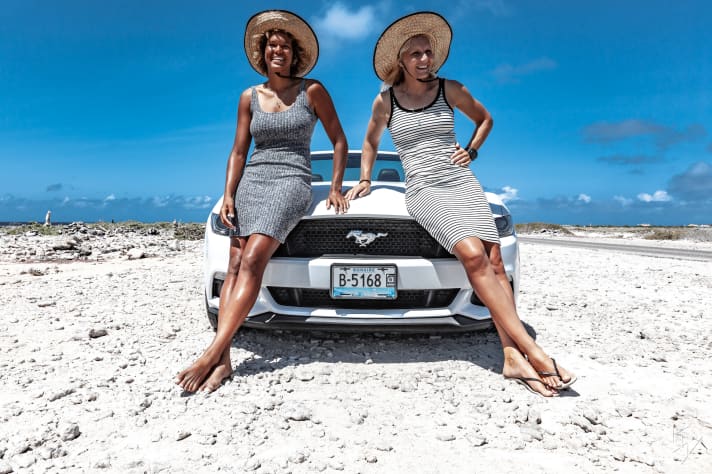
Don't you sometimes think that I actually want to beat Sarah, but training with her makes her better?
Yes, I did. I was stuck with her in Aruba for 110 days during the first lockdown, there were no flights home. The trip was planned for six weeks, but it turned into three and a half months. We trained so much together, I realised that my level was getting better, but she's still getting so much better.
Maybe you should train with some boys?
We're always on the water with lots of guys. It's just nice to have a "partner in crime" with whom you can travel together, discover spots and so on. There's nobody else who has the same effect on me as Sarah. She drives me like crazy, maybe because she drinks so much coffee. That rubs off on me in a positive way.
You weren't actually planning on travelling around with the best freestylers in the world, you were supposed to be throwing balls in a sports hall somewhere, right? Is it true that you were a professional handball player in Norway?
Yes, I played in the first division for five or six years, but I also finished school and went to university at the same time. I chose the university so that I could continue playing handball, handball was the top priority at the time. It was the dream of my life to become as good as possible. When I was 21, I did my bachelor's degree, and two years before that I tried windsurfing for the first time. We then had a very important match, but it was also windy. And I asked myself: do you want to play or would you rather be on the beach? I tried to convince myself that the game was more important to me, but deep down I was already hooked on windsurfing. That was a tough decision. I then took a year off from handball and never returned. Instead, I followed the wind. But it felt very, very strange: I loved playing handball, but when I stopped, I felt really free. Handball is a hard life. I was lucky that I wasn't injured very often, but if you play for longer than 25 or 30, you get a lot of injuries. I think I stopped at the right time. It was pure luck, because that year I was at a training camp for the Norwegian national team. The day before I was due to play, I pulled a muscle in my leg and thought how stupid. Sometimes I think that if I hadn't got that strain, I would still be playing handball instead of windsurfing. Once you're at professional level and making a living from it, you can't get out of it.
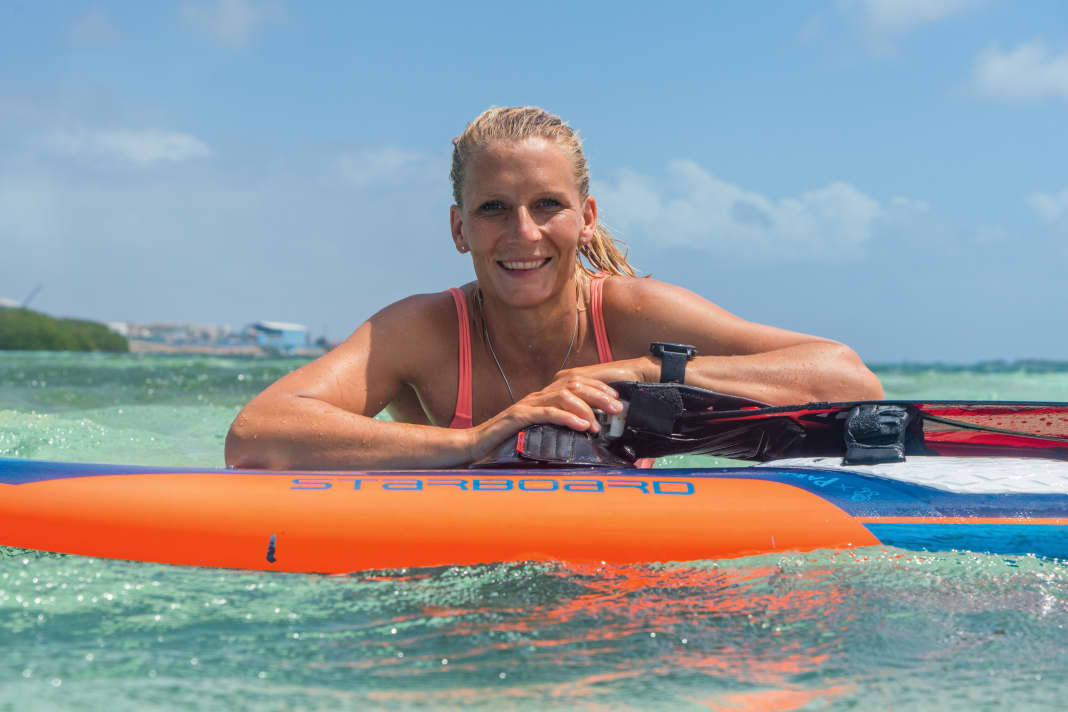





That sounds hard when you have something you're really good at and then decide to stop for something that has basically just started. What made you do it, what was the inspiration behind the decision?
I was always fascinated by snowboard tricks or things like that, but we were forbidden to jump to try 360s or anything like that. We weren't allowed to injure ourselves - except in handball. With windsurfing, I had finally found a sport where I was on the water. Not like snowboarding, you don't break your back or anything. And then it just grabbed me, the feeling of gliding, being fast with the board, trying 360 rotations. That was the most amazing experience for me! I had the feeling that something like that was missing in my life as a handball player. At the same time, I never regret my time in handball, it's like having two lives.
Do you think windsurfing is the only sport that you can start so late and still become a professional?
That's quite funny. In handball, if you start at the age of six, you can train yourself to have a strong throwing arm. If you didn't start until you were twelve, you wouldn't stand a chance, by then it would be too late. When I took a year off to surf as much as possible, I felt like I was making a lot of progress. I practised windsurfing like we did handball: We filmed everything, did video analyses, tried to train as smartly as possible. You can try a trick over and over again and your memory will always remember how you fall. Or you can try a trick, analyse what you're doing wrong and what you need to change, and then you'll learn it faster.
So you approached it very professionally. I think that's particularly important in freestyle. Especially when you consider that you only started at 21 and were already competing in the World Cup at 23.
It's also important to find the right spots for training. One of the first years I ended up in Cape Town and tried to learn the basics there, sliding and so on, and Cape Town just wasn't the right place for that. But when I was on Bonaire for the first time, I learnt so many tricks in one season. And after that I was better and could handle chop and more wind better. I always went to the best spots for the moves I wanted to learn. It was never by chance, I planned exactly what I wanted to learn and where.
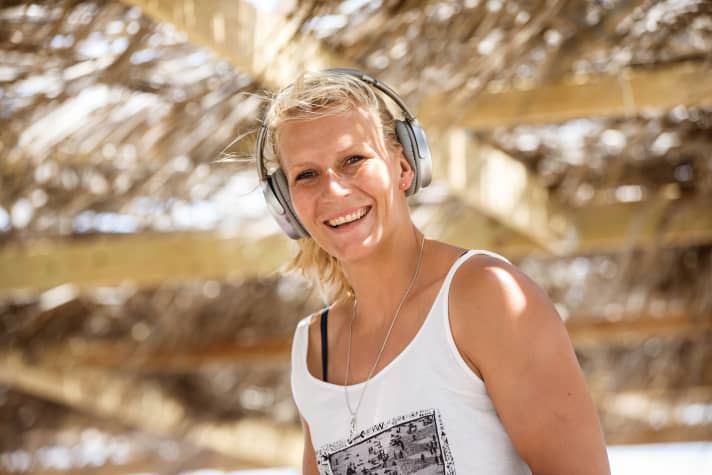
I remember that we once did workouts together in South Korea because there was no wind. You easily beat the guys on dips and pull-ups. Do you think physical fitness and strength helps?
Yes, that's extremely important! Do you know any really big guys who just lift a lot of weights but can no longer use their body properly? But there are also strong guys or women who still have good body awareness, and that's what counts. Most of the equipment has been developed by men, but we are already quite good in terms of height and weight. Maaike and I have the same shoe size, which makes it easier to keep the board flat when riding switch, for example. I have the feeling that the material suits me. If you duck the sail when skopu, for example, you have to push it quite aggressively against the wind. And the stronger you are, the easier it is.
But if you learn certain sports as a child or simply when you are weaker, you get better technique. If you have strength, you can use it and don't have to have good technique. And especially in freestyle, you have to be so precise and skilful.
Yes, freestyle is extreme. If you hold your hand just a little differently during a burner, you lie down in the water. When I played handball, I used to run and go to the gym a lot. Now I do more crossfit, like running in handstands, or I play tennis, go mountain biking, running, balance training...I do a lot of different things, I've also started skating a bit in the bowl. I think the more versatile you are, the better for freestyle. When you practise moves, you end up in so many crazy positions and you have to be able to handle the landings. So if you're just doing squats or lifting weights, that's not going to help you much.
You raced your first World Cup at the age of 24 and you came fifth straight away. Did that surprise you at the time or did you expect it?
No, I wasn't expecting it. Laure Treboux had just retired that year, as had a few other women, and Maaike and I were there for the first time. I didn't actually want to take part because I didn't want to have the same life in windsurfing as I had in handball. I wanted to keep it fun. I'm very combative, which makes it difficult sometimes (laughs). I just wanted to keep it as a fun thing. I'd just been to Fuerte, so I went along and loved it! It was really hard, Maaike and I couldn't do enough tricks yet. But I said to myself, I'm just having fun here. It was a very important competition for me, even if I would say that my level was by no means at World Cup level. But the next year, Maaike and I had a lot more moves. That year was a game changer for me because I realised that I really wanted to do this professionally and give it my all.
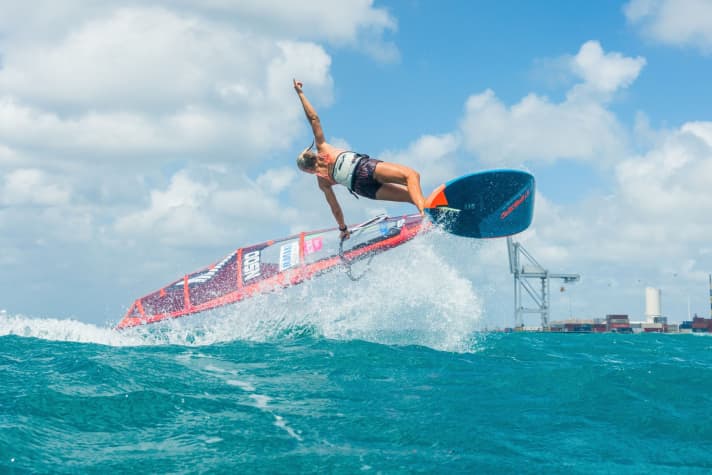
It's often the case with young riders that they think you have to reach a certain level to take part in regattas. Actually, you only have to take part because it's completely different to freesurfing.
I travelled a lot the year before my debut and several people asked me if I would like to take part in regattas. So I knew that I had a pretty high level because I was better than them. In the end it was a good thing because there just aren't enough women in freestyle. It's hard to get to a level where you can really ride a good heat. And there just aren't many girls, so I thought I'd do it for the sport because I loved the sport so much already and I wanted to see it grow and get more girls into it. If I don't do it, who will?
Why do you think there aren't more women? Freestyle is very specialised...
Assuming you want to compete in slalom, you can live anywhere where there is a bit of wind because they sail much bigger sails. But I wouldn't be a good freestyler if I only lived in Norway and only trained there because there just isn't enough wind. Learning just one trick takes a lot of time. If you're doing slalom, for example, it's easier to get to a good level. You ride straight and stop, and you can easily race against other people. In freestyle you're only racing against yourself, you have to have a lot of moves. I would say when you see people who are past the sliding level in freestyle, you know they've spent a lot of time travelling to places with a lot of wind. And they've probably also taken many years off from work or study to get to that level. There is so much training in every move!
From 2014 until now, you've always finished second or third in the World Cup. What do you think it will take for you to beat Sarah-Quita?
She's simply the most talented windsurfer of all time, she's been a pro since she was 13 or 14. It's just very, very difficult to beat her. She has so much talent! At the moment I just see her as an inspiration to get better myself. If I do a burner 360, she does a burner 720, if I do a shaka 360, she does a shaka culo... she's always one step ahead. At the moment she would have to have a broken mast to lose (laughs).
And in the future? You have to believe it's possible, right? Otherwise, what would be the point of competing at all?
The main reason why I freestyle is not the contests. I do it because I love the sport so much, that's the reason. And my biggest motivation is to learn the tricks that I think are cool. Slalom is primarily about results, and handball has always been about winning the game. Freestyle is completely different for me. I love to win, but when I came second, it felt like a victory, and a lot of us feel the same way. I would definitely be a better surfer if I had started when I was ten, but I didn't. I'm trying to catch up now. I'm trying to catch up now. I want to learn the moves that I think are cool, and that's my primary goal.
One recent issue is the equal prize money for women and men in the World Cup. Previously, if you won the women's World Cup, you got around 3500 euros; if you won the men's, you got around 6500 euros. Your comment on this?
I come from handball and went to school with other professional handball players, including men. We were the same. Sometimes we women were even more interesting. Everything is very emancipated here in Norway, which I think is good. And when there was equal prize money for men and women for the first time in Gran Canaria, there was a lot of discussion, but by the following year everyone had got used to it. Let's take Sarah-Quita as an example, because she has the most titles. She invests just as much: she pays just as much for the boardbags on the plane, she takes the same risk, why should she get less for it? If everyone gets the same for a few years, then more women will have the money to train more, and that's the only way to get to a high level. I can make a good living from windsurfing because I have sponsors from outside. That's why I can train more. I'm happy that it's becoming the same everywhere now, because it will encourage more girls to join the tour. And if you have more people, the level will also improve.
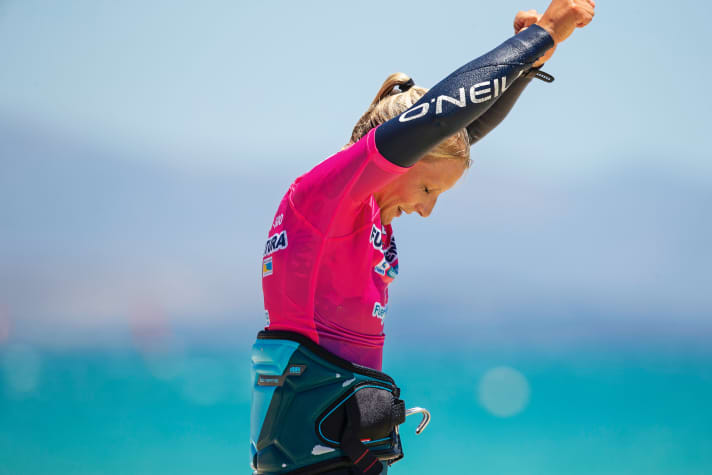
It's been like a vicious circle so far, hasn't it? You get less money because the level is lower, but the level is lower because you get less money.
The first year I was runner-up, I was super proud because I didn't get a single dollar to achieve that. I worked in Norway to travel for two months and train as much as I could. When I ran out of money, I went back home to work, and so on. A man who trains at the same spot and makes a living from surfing continues to train when I'm back in Norway for work. So he trains six months a year more than I do. Then I looked for sponsors so that I could spend more time travelling. The moment I was able to do it full-time, I suddenly got so much better.
The good thing about it all is that windsurfing is so much fun that you can do it on holiday. I would never have sacrificed so much time and money out of my own pocket to play handball. But I just want to be on the water and surfing every free minute I have, even if I'm no longer a pro. That's the crazy thing about our sport.
What are your ideas to get more events, more money, better contracts and more participation for women in windsurfing?
What the Moreno twins did, for example, was to organise a clinic for girls in Tenerife. There are so many young girls ripping in Pozo and they invited them to their camp. Camps like this are so important! I have a few girls from my camps who are so keen to learn freestyle tricks! I think you just need very good role models, then more new talent will be born!
There is a big junior scene in Pozo, with just as many girls as boys. It seems like your work is paying off for the next generation.
When these girls realise that they are very good waveriders, I'm sure they will find a way to make a life as a windsurf pro, and the level will be very high. There are ten or 15 girls who ride very well, stalled forwards, backloops and so on, and they're still going to school. That's cool!
That is the basis, which will pay off in ten or 15 years. What about now, how can we improve the situation of Oda, Maaike, Sarah-Quita and so on?
To find sponsors, the same prize money is very important for us! Then you can also find sponsors who pay the same! What inspired me a lot when I started was the many videos of women that I saw. I travelled to Brazil for the first time because I saw Arrianne Auke's videos from there. She was ripping in the small waves and I thought "Wow, I want to go there and learn that too!" That was very inspiring for me! It shows the sport, because we just don't have that many competitions, and you have to show the sponsors something, and that's relatively easy with videos.
You regularly make very funny videos with Sarah-Quita as "Magdalena & Beatrice". Have you developed your own style in order to occupy a niche and be attractive to sponsors? The lifestyle of the women is completely different to that of the men...
Is he really?
I think so. You pay attention to other things.
I don't think my sponsors from Norway care whether I'm a man or a woman. But that's also the Norwegian mentality. I know that it's quite different in other countries.
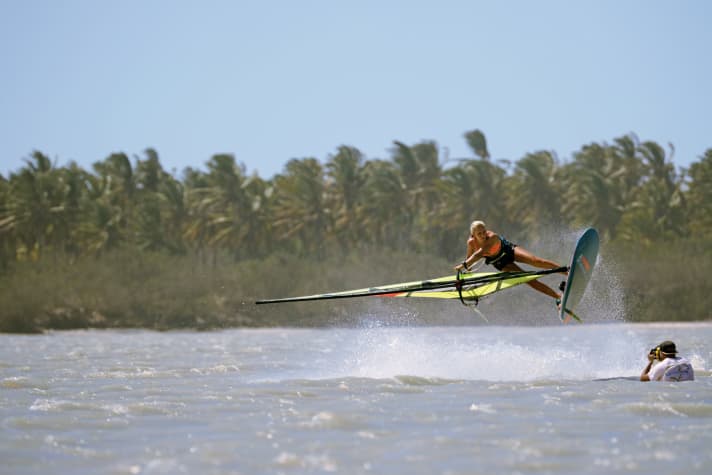
But you're also the best Norwegian at the moment, which also plays a role.
Yes, they think it's good to support a local. I was born far away from the sea and they think it's cool that the ocean is my workplace.
You're just 31, and freestyle has always been the thing for young riders. How much longer will you be doing it? The body gets older, the flexibility goes, the speed gets less...
I've been waiting for that question! No one has ever asked that in an interview before!
Maybe because you look younger! And you're probably fitter than the others.
In handball, you're old at 30 because you have so many injuries. But I want to keep progressing as long as I can feel it! I realise every year that I'm getting better - in every discipline! I looked at my passport and thought "Wow, I'm 31 already, it doesn't feel like it!" And I still feel like I've only just started. I enjoy it so much, the contests, the training - I'm going to cry when it's over! I want to keep going because I realise that I'm nowhere near reaching my full potential. It's a question of attitude: if you think I'm getting old and slow, then that's what will happen.
Do you concentrate more on slalom when freestyle no longer fits?
Freestyle is the main priority for me, I just want to give it my all. But I also want to do that when I'm racing slalom, I'm super motivated when I'm racing there. When I competed in the slalom in France, I felt so good on the water because I told myself I'd just do my best. I was calm and confident. That was a good feeling, I thought, sometimes you really can get better with age.
We once had the seats next to each other in the equipment tent at a World Cup and I remember thinking: "Damn, she's stronger than most women, she's taller than most women, she has the right equipment. She's got a good chance of getting to the top." But still, freestyle has always been your priority, hasn't it?
When it's really windy, I always go freestyling first! I simply can't miss a freestyle day! I know I can get good at slalom. Next year I want to race all the slalom events because I feel I'm not yet realising my potential. I've finished races in second or third place, but nothing more. Compared to freestyle, I've hardly invested anything in it yet. I'm looking forward to when I can invest all the effort from freestyle into slalom! It's cool to have goals and plans for the future in this discipline too! It's a really good discipline to get older in.
Okay, to finish with a more philosophical question: What does windsurfing mean to you?
For me, that's the most important thing of all! It gives me adrenalin and happiness! It's a way for me to constantly develop myself further. And in the end, that's exactly what makes me happy. Friends, family, love, that's also important of course, but it makes me very happy when I realise that I'm making progress with something. That's the most important thing for me in windsurfing!
You can also find more from Oda Johanne on her social media channels. Click here!
